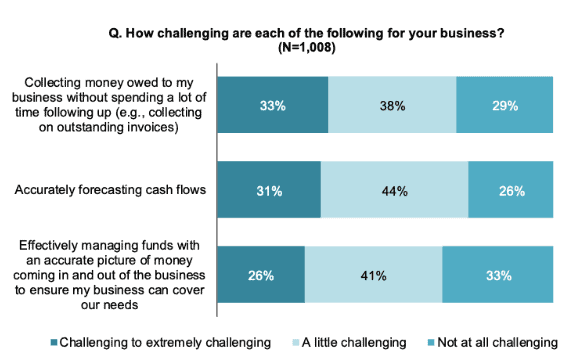Rebate management is a notoriously time-consuming and complex process – and time-consuming, complex processes are by nature error-prone and expensive. Heavy on paperwork, data entry and reconciliation, most companies that deal with rebates have many people involved in the rebate management process.
Yet too few have the right rebate management solutions in place to streamline communication and data sharing between parties, accurately record contracts and agreements, track sales and purchases made against those agreements and manage accruals and claims in an efficient manner.
The result is that many companies are leaving money on the table due to missed rebate claims, inefficient processes, data errors and disputes with suppliers which cause delays and damage business relationships.
Of course, as a company grows and the more rebate programmes it becomes involved with, rebate management complexity scales in kind – and so the company must commit even more people-hours to manual deal-tracking, data entry, complex processes and paperwork.
Many of the problems in rebate management come down to inadequate systems for recording and sharing information. Indeed, most companies still rely on spreadsheets to track purchases, sales and rebate earnings – and emails to share information between relevant internal and external parties. These outdated systems limit efficiency, lack transparency, are prone to errors and prevent real time access to critical information.
This all contributes to three of the biggest challenges today’s businesses face, as revealed in a recent survey of more than 1,000 businesses by Aite Group – collecting monies owed to the business, accurately forecasting cash flow in the future and getting a clear picture of cash flow in the present. Aite Group estimates that over 70% of businesses are more dependent on manual spreadsheets than they should be:

Common Errors in Rebate Management
Engaging in successful rebates means having the right systems and workflows in place to make sure you’re never missing out on anything but full rebate payments owed from your suppliers. It also means having the ability to accurately track purchases and sales made against multiple rebate agreements so that your organisation can gather important insights about budgets and cash flow and ensure that important business opportunities are never missed.
Here are the most common rebate management pitfalls to avoid:
1. You’re Letting Your Suppliers Calculate What Rebates You’re Owed
Suppliers typically run multiple rebate programmes across product lines to increase sales. Such rebate schemes tend to be long-term and strategic, focused on encouraging loyalty amongst customers. As a buyer, accessing these rebate programmes can lead to improved margins – however, it is crucial that you have a full handle on how much you’re purchasing and the value of the rebates you can claim against those purchases. Due to the complexity of rebate management, many businesses simply rely on their suppliers to inform them of what rebates they’re owed. This is risky and can lead to underpayments, or completely missing out on claims that are rightfully yours.
2. Deals Are Neither Clear nor Tracked Effectively
Many rebate deals are first negotiated then recorded and tracked in an impromptu fashion. Crucial information is buried away in emails, poorly filed or unlabelled documents, inscrutable spreadsheets, or simply in people’s heads. Then, when the time comes to submit the rebate claim, companies often find that they can’t locate the information required to back it up – or that the supplier has a completely different understanding of what the agreement was in the first place and consequently disputes the claim.
3. You’re Missing Out on Rebate Thresholds
Usually, a supplier will issue a customer rebate when a certain threshold (such as volume or value of purchases) has been met. In addition, supplier rebate programmes are usually tiered – meaning that there is opportunity to access greater rebates the more you buy. Without proper, up-to-the-minute visibility into rebate thresholds – and how close you are to meeting them – opportunities to access the best deals and increase rebate revenue are easily missed. For example, rebates are often quarterly – meaning if you purchase goods on the first day of a new quarter, you might miss out on a deal you would have qualified for if you had placed the same order a day earlier. Such occurrences are common due to poor rebate management.
4. You’re Wasting Hundreds of People Hours a Year on Manual Processes
As outlined above, an over-reliance on spreadsheets, emails and other manual processes for rebate management is as complex as it is time-consuming. Without having a centralised repository for recording agreements and a powerful, modern solution for tracking sales and purchases made against them, operating costs go up and up, arising from these slow, cumbersome and expensive processes that ultimately cause delays, drain resources, lack visibility and lead to errors.
5. You’re Not Using Rebate Management Software
By far the best solution to improve your rebate management processes across the board is with the implementation of powerful and purpose-built rebate management software. Today, rebate management software solutions allow you to negotiate contracts with suppliers in the cloud capturing all details and communications to establish a single source of truth for all parties. With the contract set up and the deal live, the software then automatically tracks all sales and purchases made against your agreements, calculating all rebates owed in real-time. The software also sends automated notifications, alerting relevant parties when thresholds are approaching or action is required, meaning important business opportunities are never missed. With enhanced reporting and user-specific dashboards, the ability to analyse and forecast cash flow, revenue and margins for the company is also enabled. All this advanced functionality saves time, resources and reduces operating costs by removing lengthy, expensive and error-prone manual processes that lead to delays and missed opportunities to maximise cost savings and rebate revenue for your organisation.
Want to learn more about how to optimise your rebate management? Talk to our experts at e-bate today for more information or to request a demo of our intelligent rebate management software solution.

